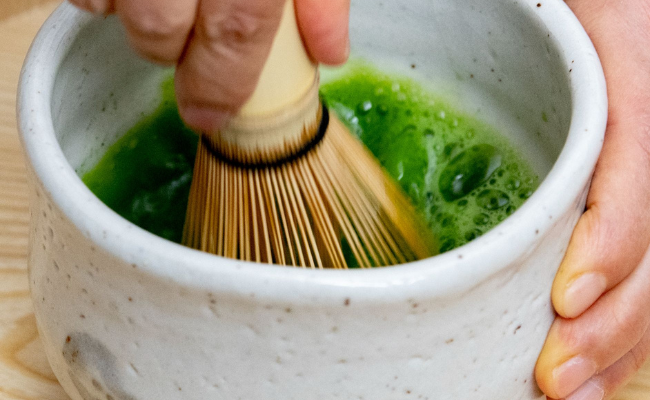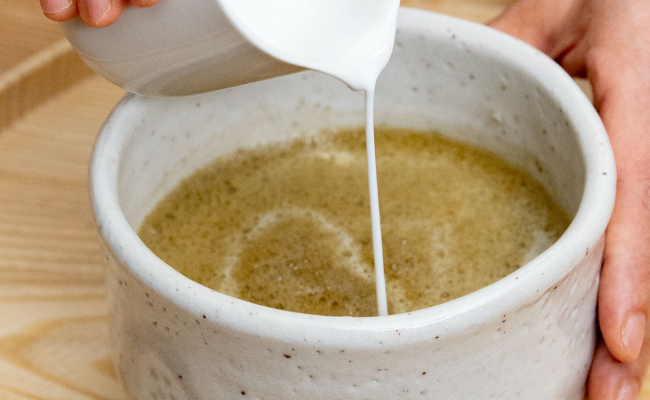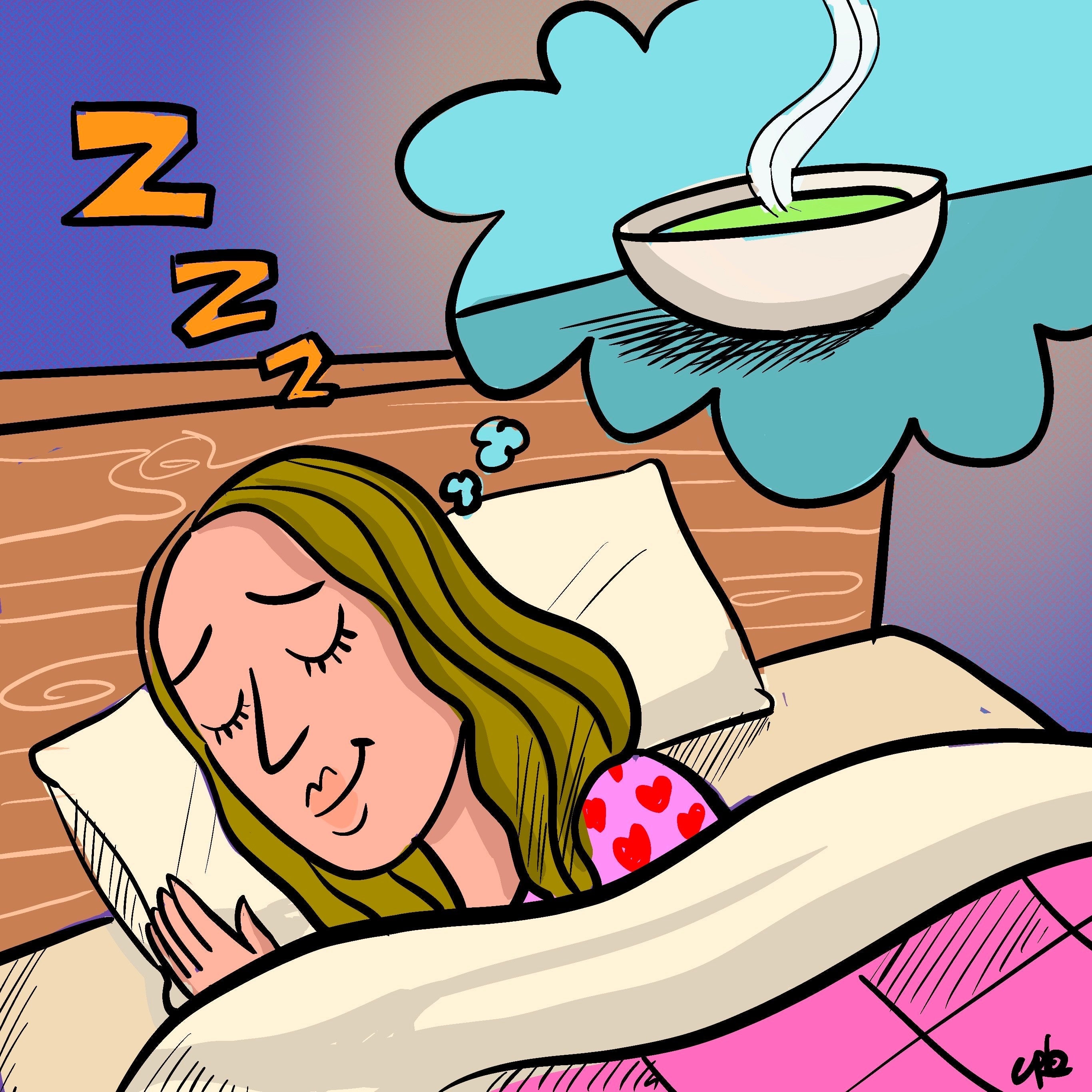Do the health benefits in your cup of green tea contain the secret of eternal youth?
If you need any more excuses to drink Ocha & Co’s range of amazing green tea and matcha, how about this: the health benefit obtained from three to four cups of freshly brewed green tea a day could very well extend your life.
According to a recent video reviewing public research on all-cause mortality risks for green tea drinkers, conducted by the highly respected researcher Dr. Michael Lustgarten Ph.D. (also a long-term Ocha & Co. customer), consuming green tea has been associated with a lower all-cause mortality rate, which suggests that it may contribute to a longer lifespan.
Dr. Michael Lustgarten, Ph.D. is a scientist in the Nutrition, Exercise Physiology, and Sarcopenia Laboratory at the Human Nutrition Research Center on Aging at Tufts University in Boston, USA.
By day, his work focuses on the gut microbiome and serum metabolome potential impact on muscle mass and function in older adults. But the esteemed scientist is also fascinated with all aspects of the aging process and how through adapting and monitoring diet and lifestyle, we can stave it off to live longer healthier lives.
Dr. Lustgarten turns himself into a human guinea pig
To investigate those goals, Michael uses another laboratory beyond the state of the arts campus at Tufts - himself!
“I regularly track blood-based biomarkers of as many organ systems as possible, but also markers found outside the blood, including blood pressure, lung function, and even the oral microbiome. My hypothesis is that I can slow aging, minimize disease risk, slow aging, and potentially maximize longevity with regular testing, followed by interventions aimed at improving systemic biomarkers."
Has reversed his biological clock by 20 years...
Through meticulously detailed self-tracking of diet and self-observed blood biomarkers and epigenetics, he’s not only built a huge and rigidly scientific database to prove aging can be controlled, but the 50 - year old scientist has also brought his biological age down to that of a human just reaching 30.
Potential health benefits in green tea's catechins
The green tea health benefits are particularly interesting to Dr. Lustgarten because “there is an association with a reduced risk of death from all causes, and because some of its metabolites, including EGCG, (epigallocatechin gallate - a plant-based compound called catechin, part of a larger group of compounds known as polyphenols) have been linked with a host of health-related outcomes.”
Ocha & Co caught up with Dr. Lustgarten to find out more about his research and potential health benefits of drinking green tea...
My primary goal is to optimize health and maximize longevity. Published data for green tea’s association with a reduced risk of death for all causes, has been known for a while - accordingly, to try to take advantage of the best available science, I’ve been drinking green tea daily for at least the past 13 years.
When did you start seeing and recording the health benefits of green tea?
It’s tough to say if green tea plays a causative role in my health, or more specifically, multiple biomarkers of organ and systemic function, which I regularly track (and try to optimize). What I can say is that the majority of my systemic biomarkers are what one would expect to find in someone younger than my chronological age (50y), and green tea is a part of that approach.
Are we able to quantify how many more years a switch to regular green tea drinking might add to life expectancy?
In humans, that’s currently unknown, as randomized controlled trials do not last many decades, which would test the hypothesis that green tea plays a causative role in extending life expectancy.
However, there are published data in animal models that at least one of green tea’s metabolites, EGCG, extends lifespan when compared to animals that are not consuming EGCG.
Can Green tea consumption help maintain a healthy gut biome?
I haven’t looked into the effect of green tea on the gut microbiome, but there is published data that green tea and EGCG can positively impact the oral microbiome! That’s potentially important because oral bacteria may impact cardiovascular disease and Alzheimer’s disease. Accordingly, one of my latest experiments involves using brewed green tea as a mouthwash, and we’ll see if it’s able to positively impact oral microbiome composition with results expected sometime in April of 2023.
What recommendations do you have for brewing green tea for optimal health benefits?
It’s hard to say what may be the optimal time, as people may differ in terms of the link between brewing time vs taste. I can say I use ~ 8g of loose leaf, organic green Sencha in a stainless steel ball, and then add boiled water. I also add ~ 20g of freshly squeezed lemon (which can “optimize” EGCG’s antioxidant status, but also for taste), and after about 10-12 minutes I drink this combination.
How can people ensure they’re drinking the ‘right’ green tea in terms of quality?
In terms of the “right” green tea, it makes the most sense (to me) that the least processed version, i.e. dried, vacuum-sealed leaves (as provided by Ocha & Co), may be best when compared with tea bags that can sit on the shelf almost indefinitely.
Can you drink too much green tea? What’s your recommended maximum number of cups per day?
The published studies show that up to 5 cups (240 mL) of green tea per tea is associated with a reduced risk of death for all causes. Similarly, all-cause mortality risk is also reduced for relatively low intakes of green tea (1 cup/d), when compared with non-consumers. So for green tea, some, rather than none, may be beneficial. I drink ~20 oz (600 mL; 2.5 cups)/d, as more than that induces frequent trips to the bathroom and also caffeine overload!
Click the link to watch Dr. Lustgarten’s recent video on green tea health benefits







